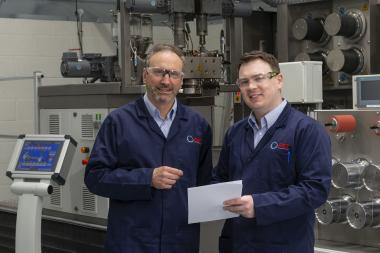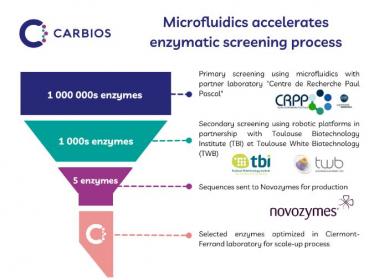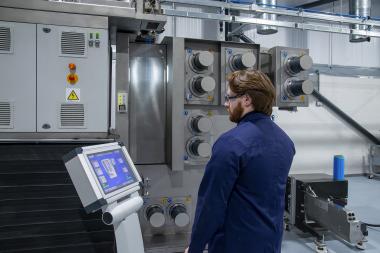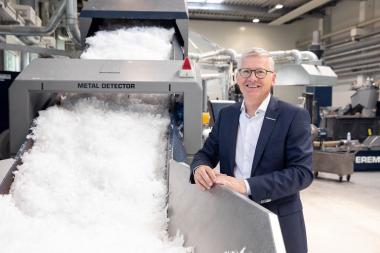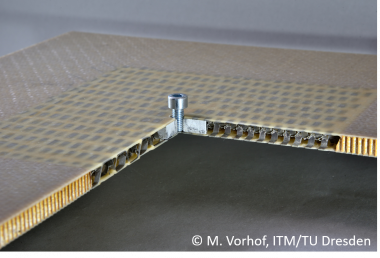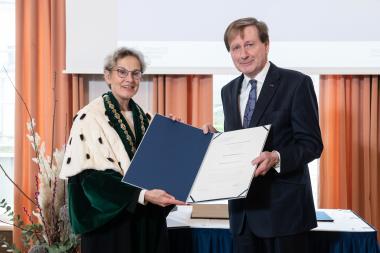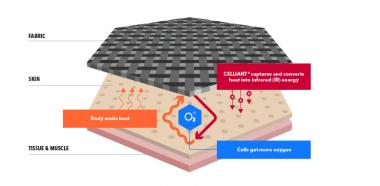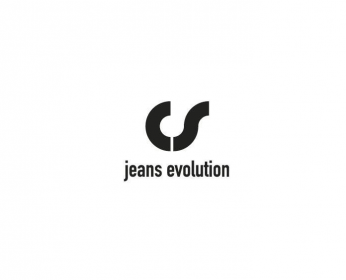Fraunhofer: New guide to the future of plastics
How does a future-proof, circular and sustainable plastics economy look like? The answer is a balance ranging from plastics reduction to a sustainable use of recyclable plastics. After all, the increasing demand for plastics in high-value applications such as food packaging, car parts or synthetic textiles requires a holistic change. With four strategic approaches, researchers from the German institute Fraunhofer UMSICHT and the Dutch institute TNO now provide insights into how this future scenario could look like in their recently published white paper "From #plasticfree to future-proof plastics". Both organizations also start a hands-on platform for plastics in a circular economy: European Circular Plastics Platform – CPP aimed at removing existing barriers and sharing of promising solutions.
Versatile and inexpensive materials with low weight and very good barrier properties: That's what plastics are. In addition to their practical benefits, however, the materials are also associated with a significant share of mankind's greenhouse gas emissions. The production and use of plastics cause environmental pollution and microplastics, deplete fossil resources and lead to import dependencies. At the same time, alternatives - such as glass packaging - could cause even more environmental burden or have poorer product properties.
Researchers from TNO and Fraunhofer UMSICHT have elaborated a white paper that provides a basis for the transformation of plastics production and use. They consider the integration of the perspectives of all stakeholders and their values and the potential of current and future technologies. In addition, the functional properties of the target product, the comparison with alternative products without plastics, and their impact in a variety of environmental, social and economic categories over the entire life cycle are crucial. In this way, a systematic assessment and ultimately a systematic decision as to where we can use, reject or replace plastics can be realized.
Strategies for the Circular Economy
As a result, the researchers describe four strategic approaches for transforming today's largely linear plastics economy into a fully circular future: Narrowing the Loop, Operating the Loop, Slowing the Loop, and Closing the Loop. By Narrowing the Loop, the researchers recommend, as a first step, to reduce the amount of materials mobilized in a circular economy. Operating the Loop refers to using renewable energy, minimizing material losses, and sourcing raw materials sustainably. For Slowing the Loop, measures are needed to extend the useful lifetime of materials and products. Finally, for Closing the Loop, plastics must be collected, sorted and recycled to high standards.
Individual strategies fall under each of the four approaches. While the ones under Operating the Loop (O strategies) should be applied in parallel and as completely as possible. According to the researchers, the decision for the strategies in the other fields (R strategies) requires a complex process: “Usually, more than one R-strategy can be considered for a given product or service. These must be carefully compared in terms of their feasibility and impact in the context of the status quo and expected changes”, explains Jürgen Bertling from Fraunhofer UMSICHT. The project partners have therefore developed a guiding principle for prioritization based on the idea of the waste hierarchy.
A holistic change, as we envision it, can only succeed if science, industry, politics and citizens work together across sectors. “This implies several, partly quite drastic changes at 4 levels: legislation and policy, circular chain collaboration, design and development, and education and information. For instance, innovations in design and development include redesign of polymers to more oxygen rich ones based on biomass and CO2 utilisation. Current recycling technologies have to be improved for high quantity and quality recycling,” explains Jan Harm Urbanus from TNO.
Hands-on platform for cross-sector collaboration
“Therefore, in a next step, TNO and Fraunhofer UMSICHT are building a hands-on platform for plastics in a circular economy: European Circular Plastics Platform – CPP," explains Esther van den Beuken, Principal Consultant from TNO. It will give companies, associations and non-governmental organizations the opportunity to work together on existing barriers and promising solutions for a Circular Plastics Economy. The platform will also offer its members regular hands-on workshops on plastics topics, roundtable discussions on current issues, and participation in multi-client studies on pressing technical challenges. Regular meetings will be held in the cross-border region of Germany and the Netherlands as well as online. The goal is to bring change to the public and industry.
Fraunhofer UMSICHT
















